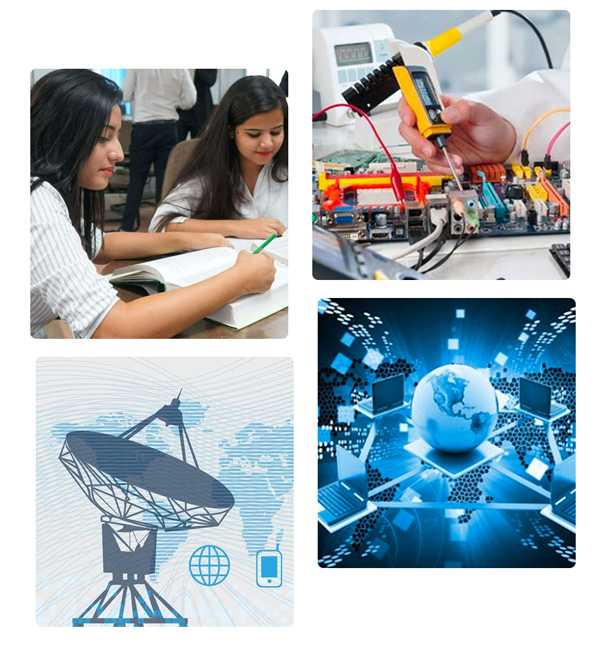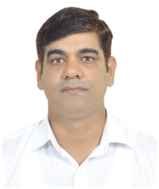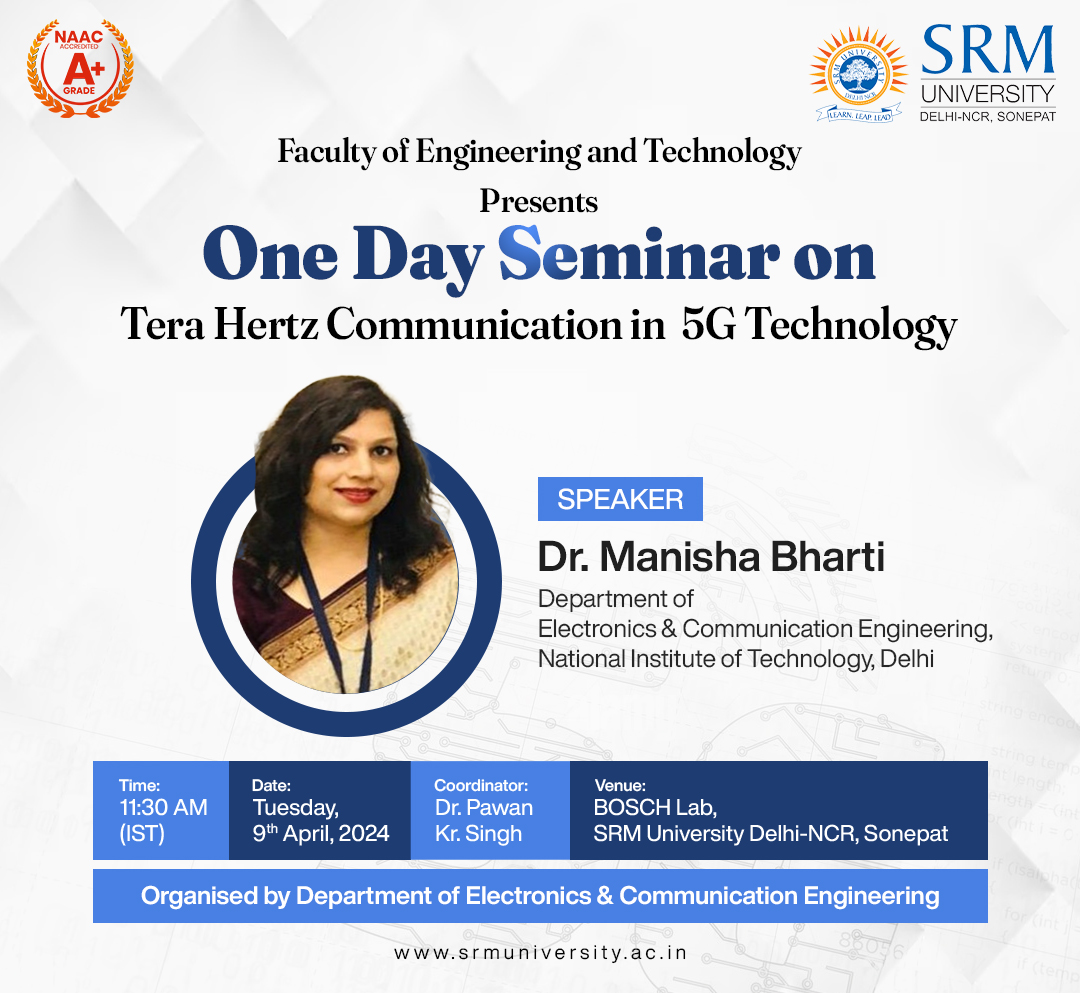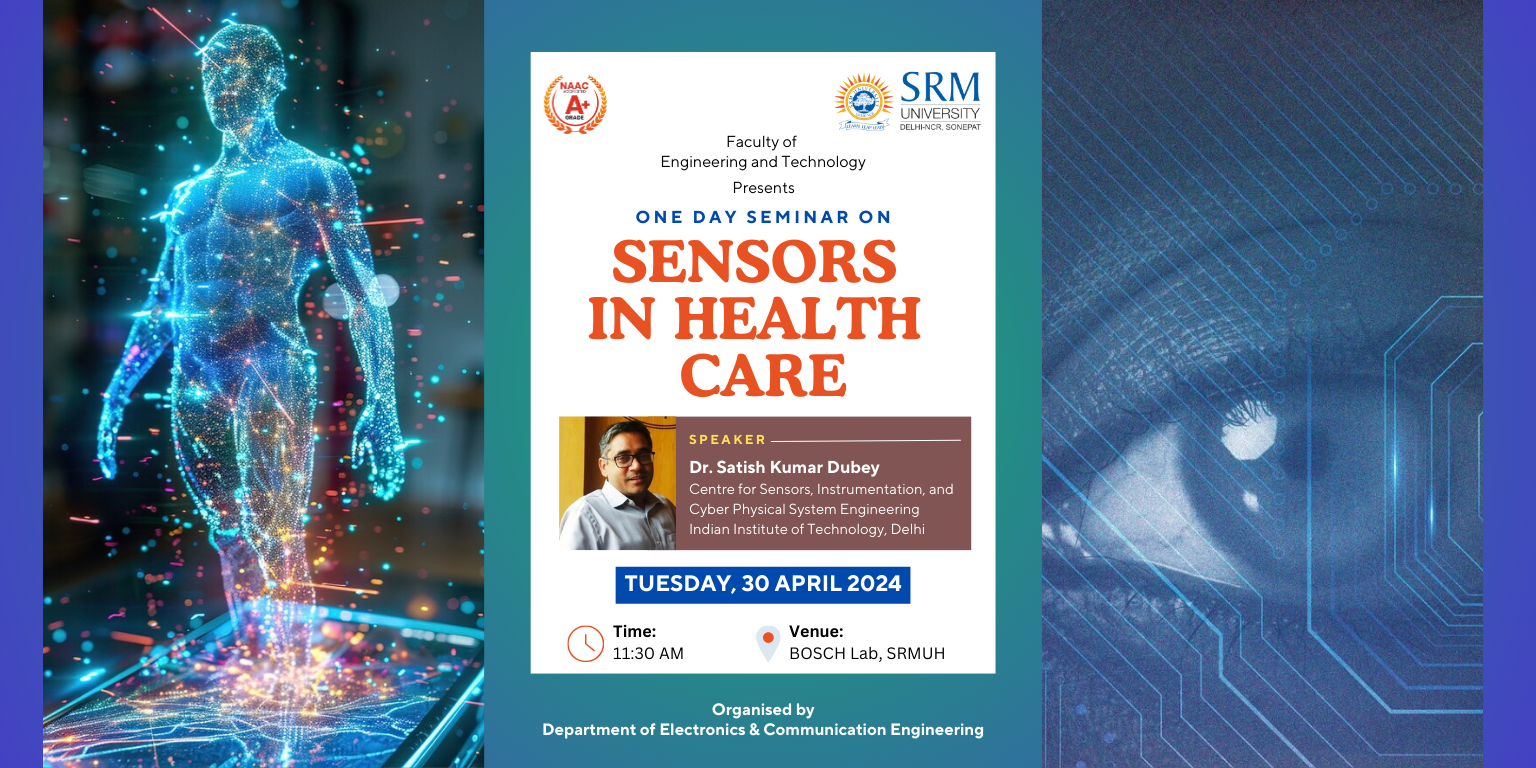
- SRMUH

Intellectually Diverse

70+ Career Programmes

Industry-Aligned Curriculum

Advanced Pedagogy
- ACADEMICS
Courses
- Faculty of Hotel Management
- Faculty of Law
- Faculty of Management Studies
-
Faculty of Science and Humanities
- Department of Agriculture
- Department of Biotechnology
- Department of Chemistry
- Department of Computer Sciences
- Department of Environmental Sciences
- Department of Food Technology
- Department of Foreign Languages
- Department of Humanities and Social Sciences
- Department of Mathematics
- Department of Microbiology
- Department of Physics
- Physical Education & Sports
University With Best Placement
2024+
JOBS PLACEMENT
50 LPA
HIGHEST PACKAGE
315+
COMPANIES VISITED
95%
OF STUDENTS ALREADY PLACED
1400+
PAID INTERNSHIP OPPORTUNITY
- Research
Research
AAAA+
Rated University in North India by Careers360
1st
University to have an academic affiliate with IET in Haryana.
70+
Programmes offered by the Mulitidisciplinary University.
1st
Indian University powered by NASSCOM Futureskills
50+
International and Industry Collaborations
47.89
Acres Campus well connected with North India
- Admissions
National
AAAA+
Rated University in North India by Careers360
1st
University to have an academic affiliate with IET in Haryana.
70+
Programmes offered by the Mulitidisciplinary University.
1st
Indian University powered by NASSCOM Futureskills
50+
International and Industry Collaborations
47.89
Acres Campus well connected with North India
- Placements
Placements
University With
Best Placement2024+
JOBS PLACEMENT
50 LPA
HIGHEST PACKAGE
315+
COMPANIES VISITED
95%
OF STUDENTS ALREADY PLACED
1400+
PAID INTERNSHIP OPPORTUNITY
- Happenings
Happenings
Industry Aligned Curriculum
Innovative Web Technology
Interdisciplinary Learning Framework

